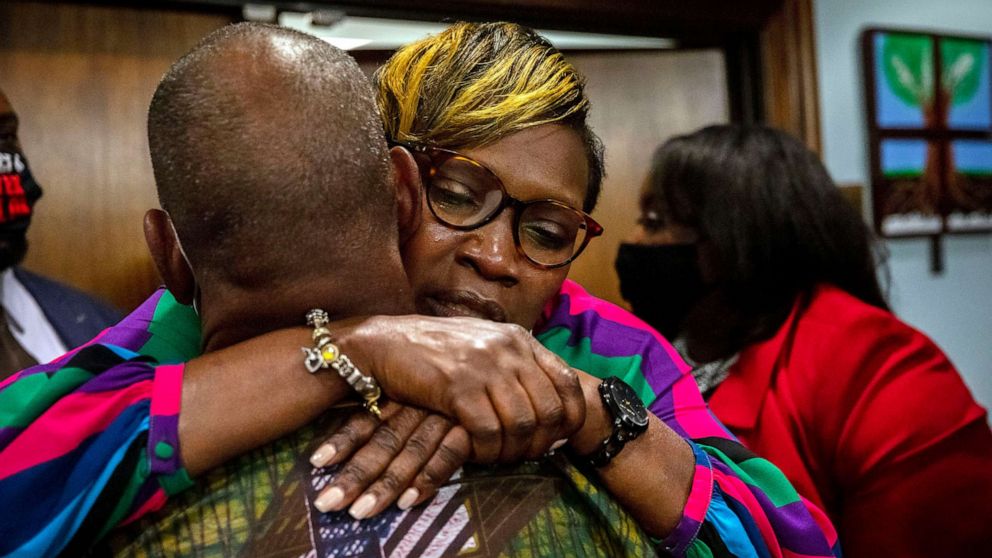
The guilty verdicts in the Ahmaud Arbery’s murder case heartened many social justice advocates, and rightly so.
It is rare to see the law working as it should and not as it usually would for black people.
Yet, if you view the successful prosecution of Mr. Arbery’s killers as anything but a fluke (The leaked 36-second video clip capturing the hunt and the kill being that fluke), you are wishful thinking.
Understandably, the audacity of the crime– three white men brazenly chasing and killing a black man jogging through their suburban neighborhood– and the rare guilty verdicts handed down commandeer our focus.
But if you look away from those bright, shining aspects of the case, you’ll find that the actual defendants weren’t the three men charged and convicted–Gregory McMichael, Travis McMichael, and William Bryan—but the cops and prosecutors involved with the case.
The actions of these two pillars of the criminal justice system following the shooting provide a classic example of how police officers and prosecutors often work in concert to stifle justice for black people
The Cops
Mr. Arbery was shot and killed by Travis McMichaels Feb. 23, 2020, in Satilla Shores, a neighborhood near Brunswick in Glyn County, Georgia.
Minutes after his son shot Mr. Arbery, Gregory McMichaels, a former police officer, called the prosecutor for the Brunswick Judicial Circuit, Jackie Johnson, for advice. Mr. McMichaels had worked as an investigator in her office for years.
“Jackie, this is Greg,” Mr. McMichaels said, according to a recording of the call.
“Could you call me as soon as you possibly can? My son and I have been involved in a shooting and I need some advice right away.”
There is no public record of her responding to the call.
Our office is committed to ensuring those who are entrusted to serve are carrying out their duties ethically and honestly.
Georgia Attorney General Chris Car
Meanwhile, body camera footage from police arriving on the scene showed that the officers swallowed hook, line and sinker Gregory McMichaels’ claim that his son shot and killed Mr. Arbery in self-defense.
He and his son claimed that the unarmed black man that they chased and killed was the aggressor.
“To be perfectly honest with you, if I could have got a shot at the guy, I’d have shot him myself,” Gregory McMichaels told the cops.
And from the body camera footage you can hear an officer saying, “I do know Greg. How are you doing?”
“Y’all aren’t putting him in cuffs, are you?” Gregory McMichael asked, referring to his son.
“No,” the officer replied.
“Why would he be in cuffs?”
One officer asked another, “Did he shoot him? A self-defense thing?”
“That’s what it looks like,” was the reply.
The case most likely would never have come to trial if the police and the prosecutors had had their way, as they usually do.
Indeed, prosecutors did not look to arrest anyone until two month after the killing, and only after the video clip of the crime, shot by Mr. Bryan, was leaked May.5.
The Prosecutors
Ms. Johnson, the first prosecutor handling the case, recused herself the day after the shooting, citing her office’s association with Mr. McMichael. It wasn’t until February. 27, however, that she formally requested the appointment of a new prosecutor, George Barnhill, the district attorney in Waycross, Ga..
Mr. Barnhill’s son had worked with Gregory McMichaels to prosecute Mr. Arbery in a previous case, so he, too, recused himself, but not before advising the police that it was “perfectly legal” for Mr. McMichaels to shoot Mr. Arbery.
Only after the video clip of the crime became public did the third prosecutor handling the case move to arrest the killers.
So, yes, be heartened by the guilty verdicts in Mr. Arbery’s case and the extremely rare indictment of a prosecutor for misconduct that it engendered.
Ms. Johnson was booted from office by the voters and later indicted by a grand jury for violating her oath of office.
The Verdict
“Our office is committed to ensuring those who are entrusted to serve are carrying out their duties ethically and honestly,” Georgia Attorney General Chris Carr said in a statement following Ms. Johnson’s indictment.
I’d like to believe him. But let’s see what happens to Mr. Barnhill. Unlike Ms. Johnson, he is still in office.
Let’s see what happens to the “George Floyd Justice in Policing Act,” which is supposed to limit the extrajudicial killing of black people by the police.
Let’s see what happens to the “Emmett Till Antilynching Act,” named after a 14-year-old black boy tortured and killed in Mississippi in 1955.
We know that despite the massive and national social justice protests of 2020 and Democrats now controlling the executive branch of the government, the Senate and the House, those two acts are not yet signed into law.
Yes, it feels good to see the criminal justice system finally work as it should in Mr. Arbery’s case, but don’t get carried away hoping that the system is finally being made accountable.
Don’t get me wrong. Hope is a good thing, but don’t go confusing it with wishful thinking.
